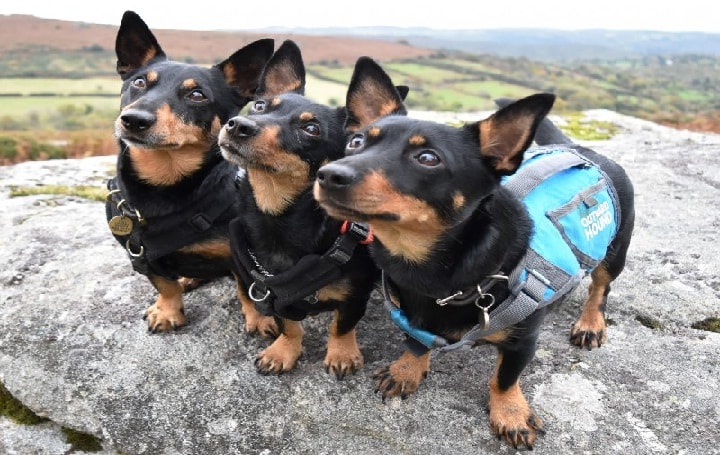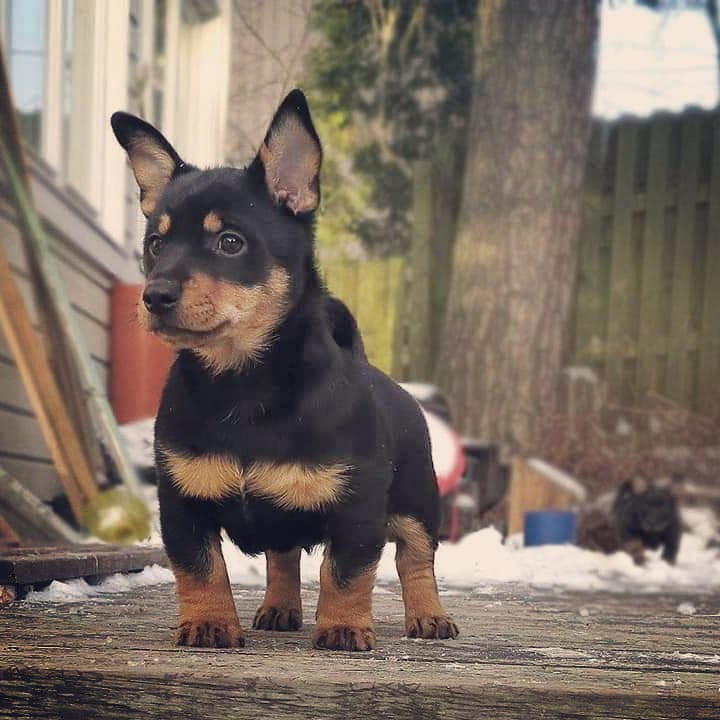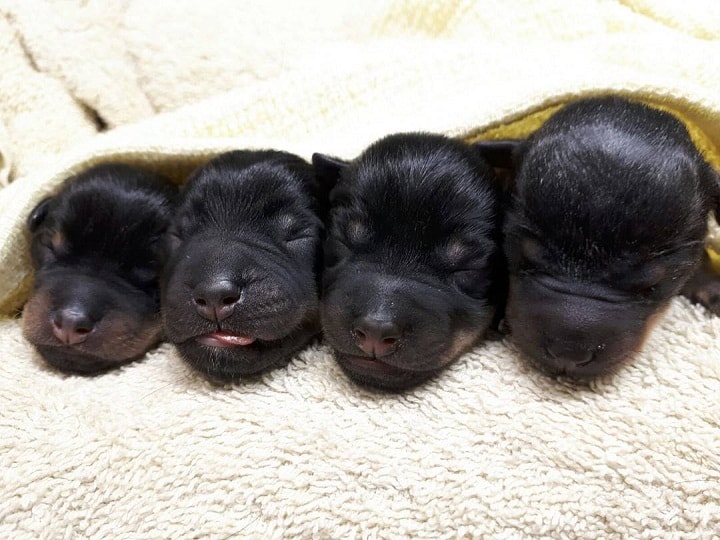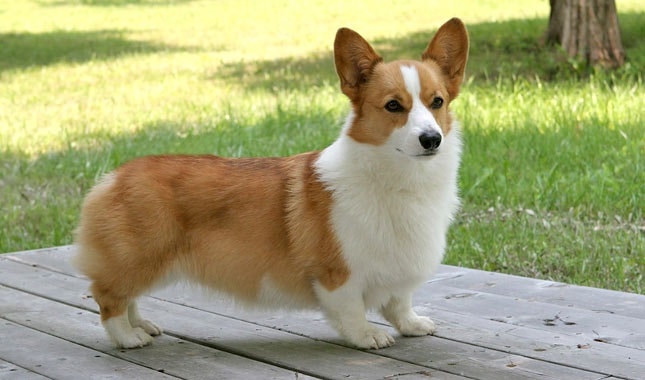Lancashire Heeler – Dog Breed Information
| Country of Origin | England |
| Nicknames and Other Names | Ormskirk Terrier Ormskirk Heeler |
| Scientific Name | Canis lupus familiaris |
| Breed Type | Purebred |
| Group | Herding Group |
| Bred For | Herding cattle |
| Size | Small-sized |
| Recognized By | AKC, FCI, UKC |
| Life Span | 12-15 years |
| Ideal Weight | 9-17 pounds (male and female) |
| Ideal Height | 10-12 inches (male and female) |
| Fur Type | Harsh and smooth, weather-resistant |
| Common Colors | Black and Tan Liver and Tan |
| Markings | None |
| Availability | Rarely available |
| Achievements | None |
| Suitable for Apartments | Yes |
| Used in World War | No |
| Most Similar To | Cardigan Welsh Corgi |
Lancashire Heeler is a small-sized dog breed from Great Britain which was used for herding livestock. Despite their small size, they are a very active and lively dog who makes a great family pet. While they like to be engaged in work mostly and want to be involved in family activities, they also like to sit with their family and rest at the end of the day.
Lancashire Heeler is small and strongly built. They are slightly longer than are tall. The head is proportionate with the body and the eyes are round and bright which is set far apart. The nose is either black or brown that varies with the color of the coat. The ears are erect when they are alert.
Origin and History
Lancashire Heeler was originated in the 17th century and their place of origin is still unknown. This breed is believed to breed with the cross of Welsh Corgi and Manchester Terrier. Lancashire Heeler was used for herding and driving livestock to the market and at home, they are used for catching rats and mice. Besides being a working dog, this breed was widely popular as a great family companion.
Lancashire Heeler was recognized by United Kennel Club in 1981. The American Kennel Club has kept this breed on the Foundation Stock Service since 2001.
Is Lancashire Heeler Child-Friendly?
Lancashire Heeler is a child-friendly dog which is very affectionate and loving towards them. They make a great playmate for children as they are playful and active. However, as a herding dog, they sometimes have a tendency to herd so small children should be supervised.
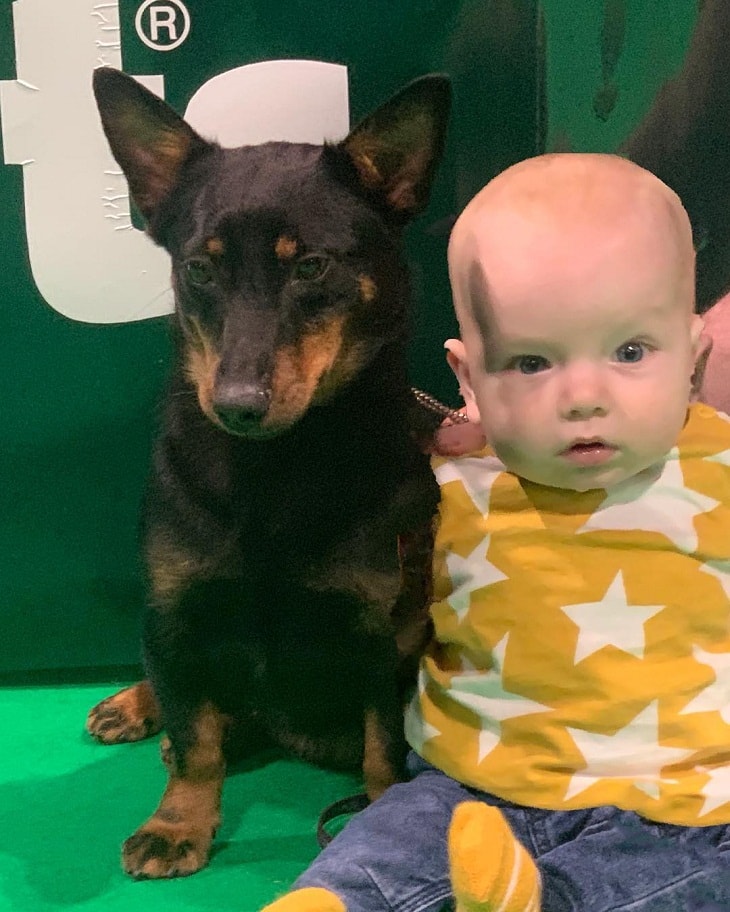
Temperament, Behavior and Personalty
Temperament: The temperament of Lancashire Heeler is affectionate and intelligent. They are a loyal and fearless breed that do not get afraid to face much bigger dogs than him. Lancashire Heeler does fairly well with other cats and dogs if socialized and raised together. However, they are wary of strangers, so makes a good watchdogs.
Behavior: Lancashire Heeler were originally bred as herding and ratter dog so they have a high herding instinct. If there is small pets and toddlers, they might tend to chase them around. They form a strong bond with the family and if left alone they might face depression and separation anxiety.
Personality: The personality of the Lancashire Heeler is alert. They are suitable for a family pet and are great watchdog who aware of its owner if they sense any suspicious activities going on in the surrounding.
Trainability
Lancashire Heeler is an intelligent breed but they are very stubborn which make training hard for a novice owner. However, an experienced owner with firm leadership, patience, and consistency can handle this breed well. Reward them with treats and vocal praises after they complete a given task. Be gentle with them and do not use harsh language and rough hand. This might scare them and they will not be able to concentrate any further.
Facts
- According to American Kennel Club, the Lancashire Heeler is a rare breed with only around 5000 in number all around the world.
- The Lancashire Heeler is also known as Ormskirk Terrier.
- The average life span of Lancashire Heeler is between 12-15 years.
Health Issues
| General Health | Healthy |
| Common Health Issues | Cataracts, Patellar Luxation, Persistent Pupillary Membranes, Reverse Sneezing, Collapsed Trachea |
| Hypoallergenic | No |
| Vaccination Required | Rabies, Canine Coronavirus, Leptospirosis, Canine Parainfluenza, Kennel Cough, Canine Distemper, Canine Parvovirus |
| Shedding | Moderate Shedder |
| Drooling | Low Drooler |
| Grooming | Easy and Minimal Grooming Required |
| Weight Gain Potential | Average to High |
| Separation Anxiety | Moderate Chance |
| Allergies | None |
| Diets and Supplements | Protein: 29% Fat: 12% Glucosamine Multivitamins Fish Oil |
The Lancashire Heeler is generally a healthy breed that might suffer from some genetic health condition. Some other canine health problems they might suffer during their lifetime are as below:
- Patellar Luxation: It is a common problem seen both in large and small dogs. It is the condition where the kneecaps usually move from its original location causing discomforts and lameness.
- Lens Luxation: Lens luxation is the dislocation of the eyes lens that moves either in the front or at the back. The cause of this disease is mainly because of heredity. The symptoms are redness of eyes in the beginning and slowly weakness is seen in the dog.
- Cataracts
Colors
Lancashire Heeler mostly in two colors which are as follows:
- Black & Tan
- liver & Tan
Puppies

Image Source: instagram- @limespiritkennel 
Image Source:instagram- @sssandrrr
Cost: The average cost of a Lancashire Heeler puppy is between $800- $1000 USD and even more depending on the breeders.
Size
Height: The average height of Lancashire Heeler is 10-12 inches from the shoulders.
Weight: The average weight is between 9-17 pounds.
Similar Dog Breeds to Lancashire Heeler
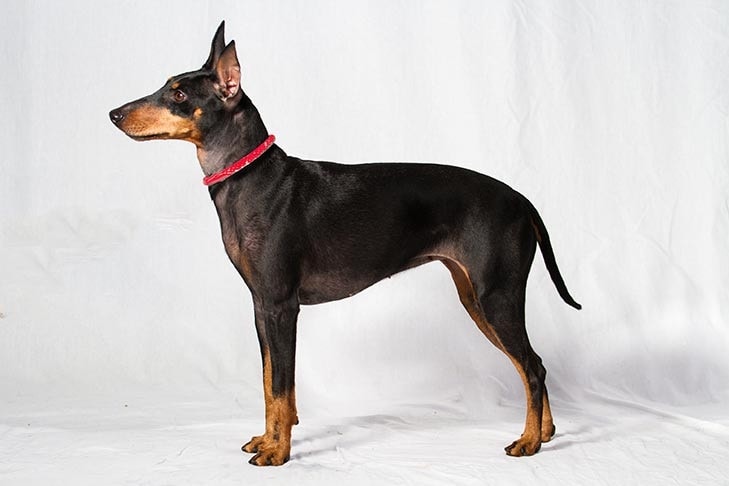
Manchester Terrier
Visit Doglime for more information about dog breeds and their behavior.
Tags
